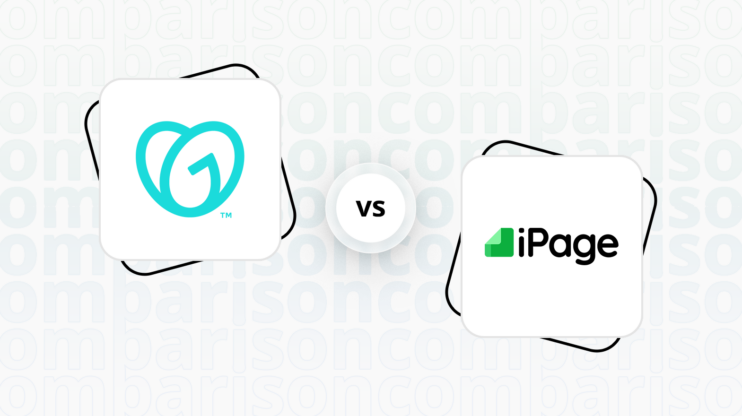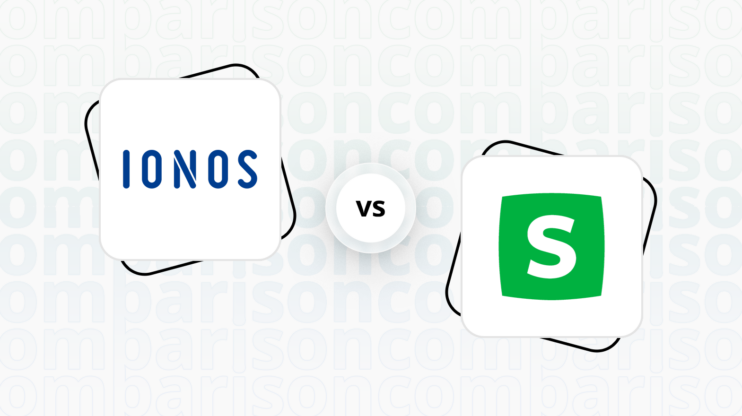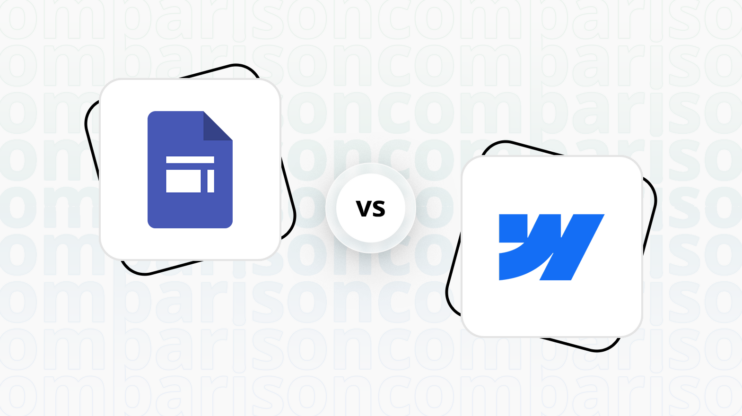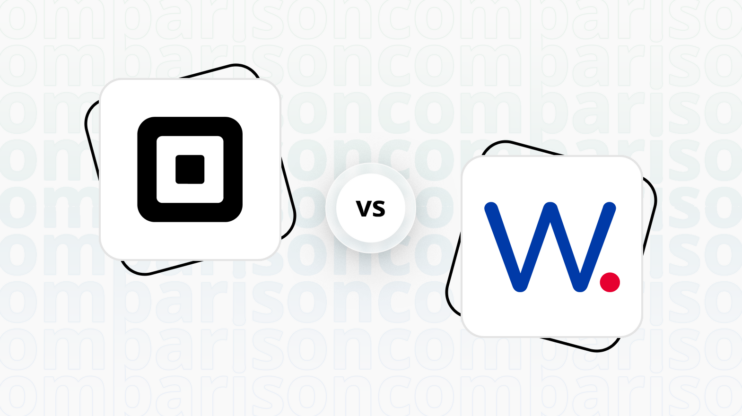Final verdict
Shopify and GoDaddy both offer comprehensive website building and hosting solutions, but they cater to different user needs and preferences.
-
Shopify (Overall Grade: 8.1/10)
excels in providing a robust ecommerce platform with advanced features like multi-channel selling, detailed analytics, and extensive integrations. It is ideal for businesses looking to scale their online stores and benefit from specialized ecommerce tools. When comparing Shopify vs GoDaddy, Shopify stands out for its superior ecommerce capabilities, security features, and dedicated customer support. -
GoDaddy (Overall Grade: 7.5/10)
is a versatile platform offering a range of services, including domain registration, web hosting, and a user-friendly website builder. It is particularly suitable for beginners and small businesses looking for an affordable and easy-to-use solution. In the Shopify vs GoDaddy comparison, GoDaddy shines with its ease of use, extensive template collection, and comprehensive support for various website needs beyond ecommerce.

|

|
|
|---|---|---|
|
Design functionalities & templates |
8.2 |
8.0 |
|
Ease of use |
7.5 |
8.2 |
|
Ecommerce |
9.2 |
7.2 |
|
Website Editors |
7.9 |
6.7 |
|
Product testing options |
8.1 |
8.1 |
|
Price |
8.2 |
7.9 |
|
Hosting quality |
9.0 |
7.8 |
|
Website speed optimization |
7.8 |
7.6 |
|
Plugins and integrations |
8.7 |
7.3 |
|
Marketing features |
8.8 |
7.3 |
|
Customer support |
8.6 |
8.5 |
|
Security |
9.0 |
6.8 |
|
AI capabilities |
7.9 |
7.5 |
|
User Management |
6.5 |
7.3 |
Best for ecommerce
 9.2
9.2
 7.2
7.2
Verdict
: Shopify is the superior choice for ecommerce, offering advanced features and scalability, while GoDaddy provides a more user-friendly experience for smaller operations.
-
Shopify
: With a score of 9.2, Shopify excels in ecommerce with its comprehensive store builder, advanced inventory management, and multi-channel selling capabilities. It supports a wide range of payment gateways and offers detailed analytics and reporting, making it ideal for businesses looking to scale. However, Shopify’s extensive features might be overwhelming for beginners. -
GoDaddy
: Scoring 7.2, GoDaddy is a solid choice for those seeking a user-friendly platform with integrated payment processing and flexible shipping options. It offers essential ecommerce features like SEO tools, email marketing, and social media integrations. However, it lacks the advanced capabilities and scalability that Shopify provides, making it more suitable for smaller businesses.
Best for informational & business websites
 6.8
6.8
 7.9
7.9
Verdict
: When it comes to creating informational and business websites, GoDaddy has a slight edge over Shopify. GoDaddy’s user-friendly interface and extensive template collection make it a better choice for those looking to build a visually appealing and easy-to-manage website.
-
Shopify
: Shopify, primarily known for its ecommerce capabilities, can be used for informational websites but may feel overly complex for such purposes. Its templates are sleek and professional, ideal for online stores, but the platform’s focus on ecommerce tools might be more than what is needed for a simple informational site. Shopify scores 6.8 in this category. -
GoDaddy
: GoDaddy offers a comprehensive platform with a user-friendly website builder, making it easier for beginners to create and manage their sites. With a wide range of templates catering to various industries and design preferences, GoDaddy is well-suited for informational and business websites. It scores 7.9, making it a more favorable option in the Shopify vs GoDaddy comparison for this use case.
Detailed comparison
Design functionalities & templates
Design FunctionalitiesRepresents how well each platform allows for creative design and customization of websites.Score Components:
- Template Variety (30%): Range and quality of design templates.
- Customization (30%): Flexibility and options for design alterations.
- User Interface (20%): Ease and intuitiveness of the design process.
- Responsiveness (10%): Adaptability to different devices and screen sizes.
- Innovation (10%): Unique design features and tools.
 8.2
8.2
 8.0
8.0
🏆
Winner: Shopify.
If you’re looking for a platform that offers sleek and professional templates ideal for ecommerce sites, Shopify is the preferred choice.
Shopify’s templates offer a sophisticated look with a focus on online stores. While the free template selection is not large, Shopify’s premium theme store provides a variety of industry-specific options, offering advanced features for a strong brand presence.
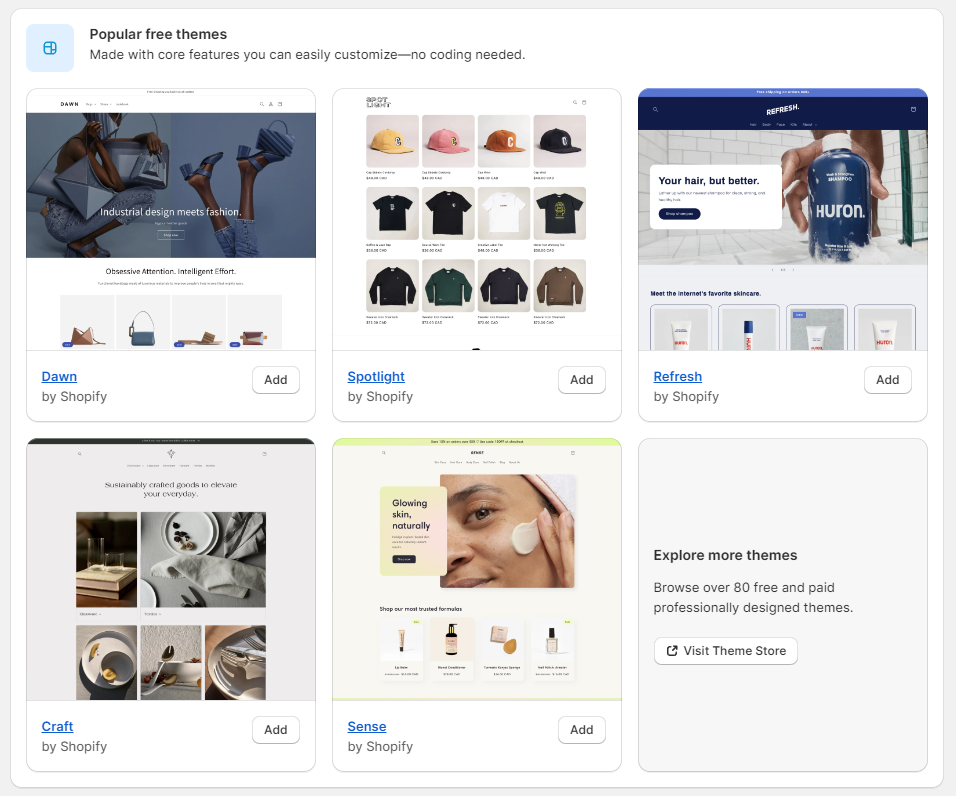
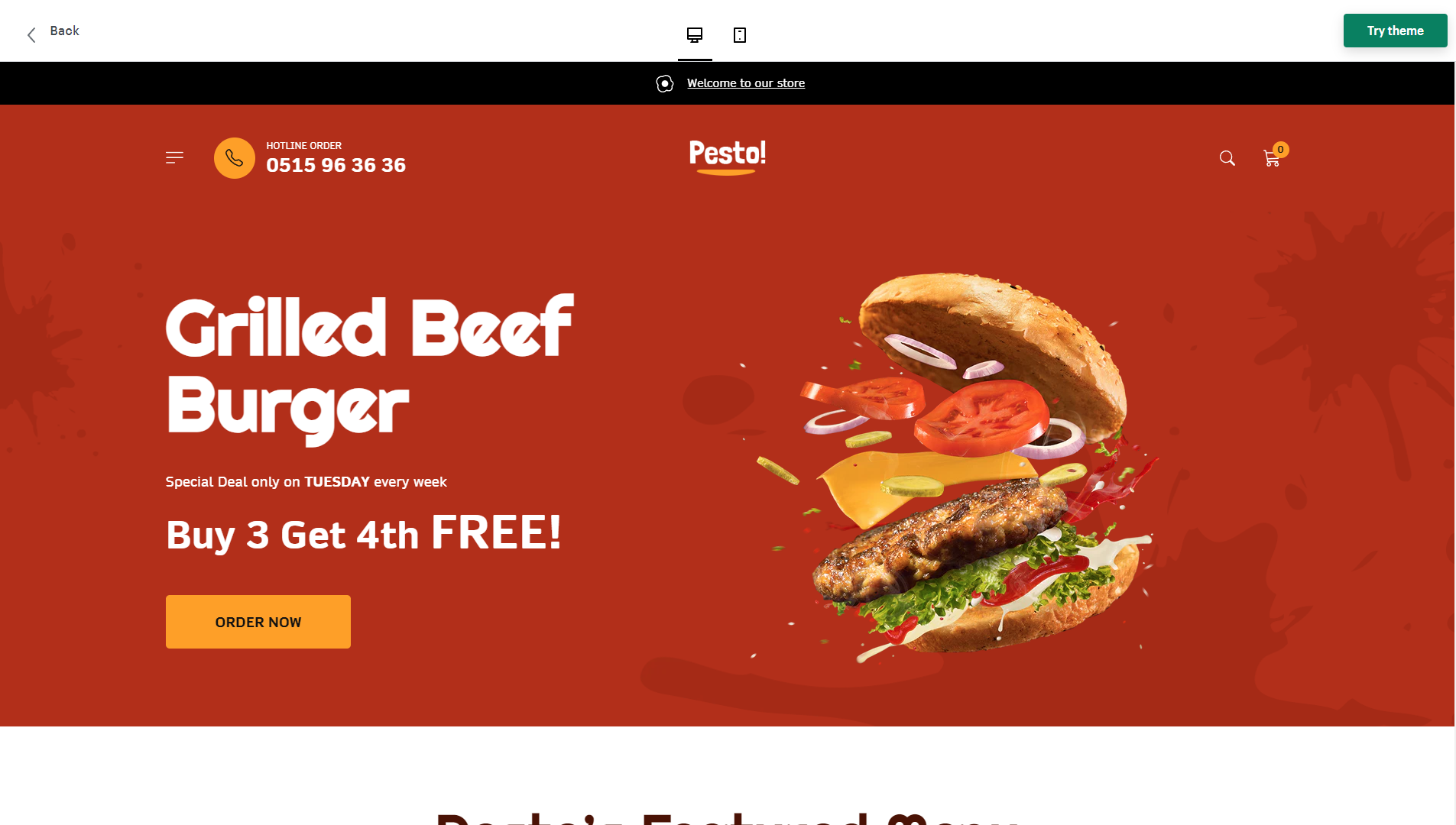
Compared to Shopify, GoDaddy provides an extensive collection of over 1500 website templates catering to diverse industries and design preferences. These templates cover business, ecommerce, creative, personal, and non-profit sectors, offering various styles such as modern, classic, bold, minimalist, and content-focused. With customization options, mobile responsiveness, and a combination of free and premium templates, GoDaddy aims to meet the needs of users seeking versatile and visually appealing website designs.
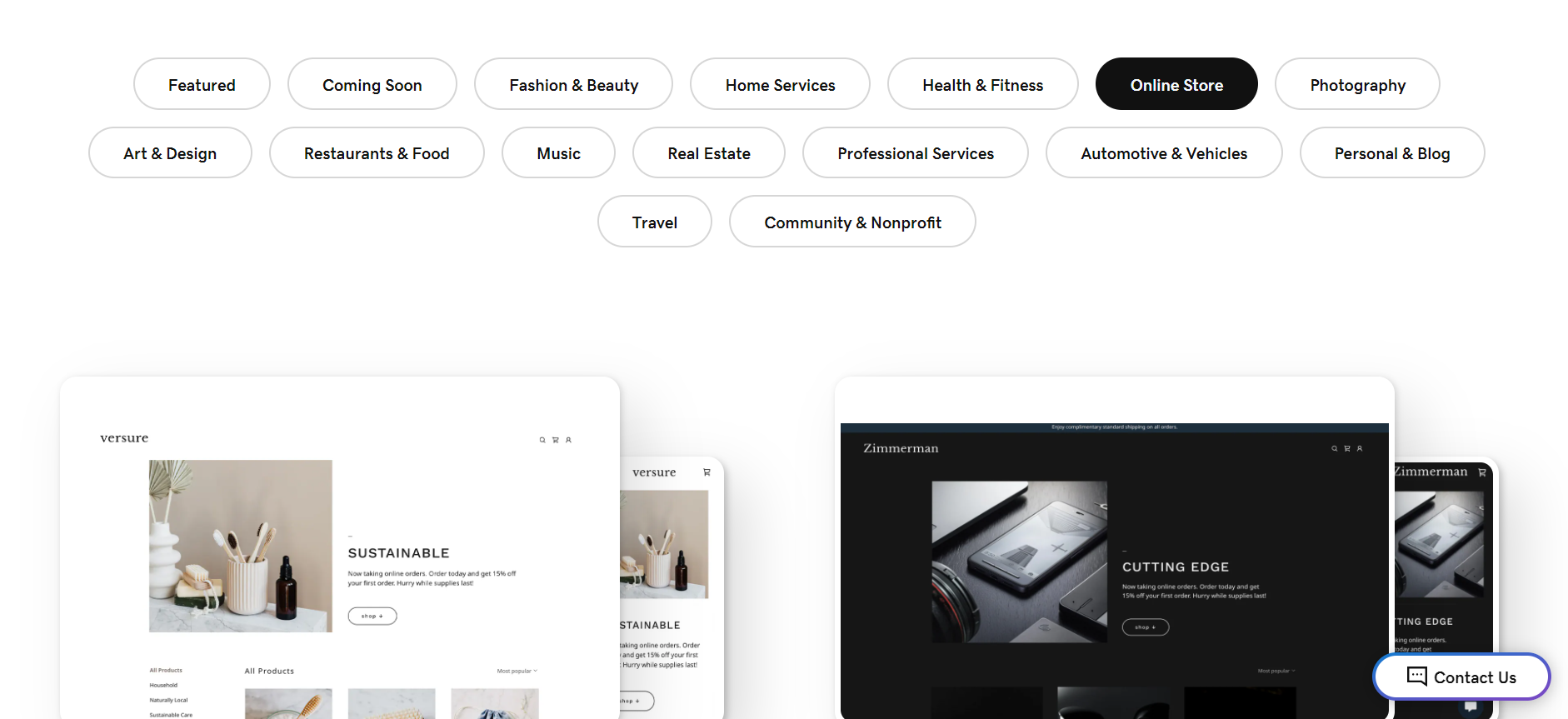

Get a head start on website creation with AI
Create a custom website tailored to your business needs 10X faster with 10Web AI Website Builder!
Ease of use
Ease of useReflects the platform’s overall user-friendliness.Score
Components:
- Learning curve (40%): Quickness and ease of getting started.
- Interface design (30%): Simplicity and intuitiveness of layout.
- User guidance (20%): Quality of tutorials and support.
- Flexibility (10%): Adaptability to various user skills.
 7.5
7.5
 8.2
8.2
🏆 Winner: GoDaddy
. With a score of 8.2, GoDaddy’s user-friendly platform is popular among beginners due to its drag-and-drop interface, WYSIWYG editor, and mobile-responsive templates. Shopify, scoring 7.5, also offers a robust platform but with a steeper learning curve, especially for those new to ecommerce. If ease of use is a priority, GoDaddy is the clear winner in this category.
Learning Resources
🏆 Winner: Shopify
. While both platforms offer solid learning resources, Shopify goes a step further with its wide array of detailed tutorials and active community forums, making it easier for users to learn and adapt.
For ecommerce
EcommerceMeasures the platform’s effectiveness in supporting online business activities.Score Components:
- Ecommerce themes and templates (20%): Variety and design of templates.
- Product management (25%): Ease of managing and organizing products.
- Payment options (25%): Variety and convenience of payment methods.
- Ecommerce features (20%): Features for managing an ecommerce store.
- Integration (10%): Compatibility with external e-commerce tools and services.
 9.2
9.2
 7.2
7.2
Shopify and GoDaddy both offer robust ecommerce solutions, but they cater to different needs. Shopify, with a score of 9.2, is a comprehensive ecommerce platform with advanced features like multi-channel selling and detailed analytics. GoDaddy, scoring 7.2, provides a user-friendly experience with integrated payment processing and flexible shipping options.

|

|
|
|---|---|---|
|
Ecommerce themes and templates |
8.2 |
6.5 |
|
Product page customization |
8.5 |
6.0 |
|
Payment processing and commissions |
8.8 |
7.5 |
|
POS capabilities |
8.1 |
6.0 |
|
Payment gateways |
9.5 |
7.0 |
|
Product numbers |
9.0 |
7.0 |
|
Additional ecommerce features |
9.1 |
6.5 |
Shopify ecommerce features:
- Comprehensive store builder
- Shopify Payments and other gateways
- Advanced inventory management
- Multi-channel selling
- Abandoned cart recovery
- Detailed analytics and reporting
GoDaddy ecommerce features:
- Payment processing
- Shipping options
- SEO tools
- Email marketing features
- Social media integrations
- Detailed reports
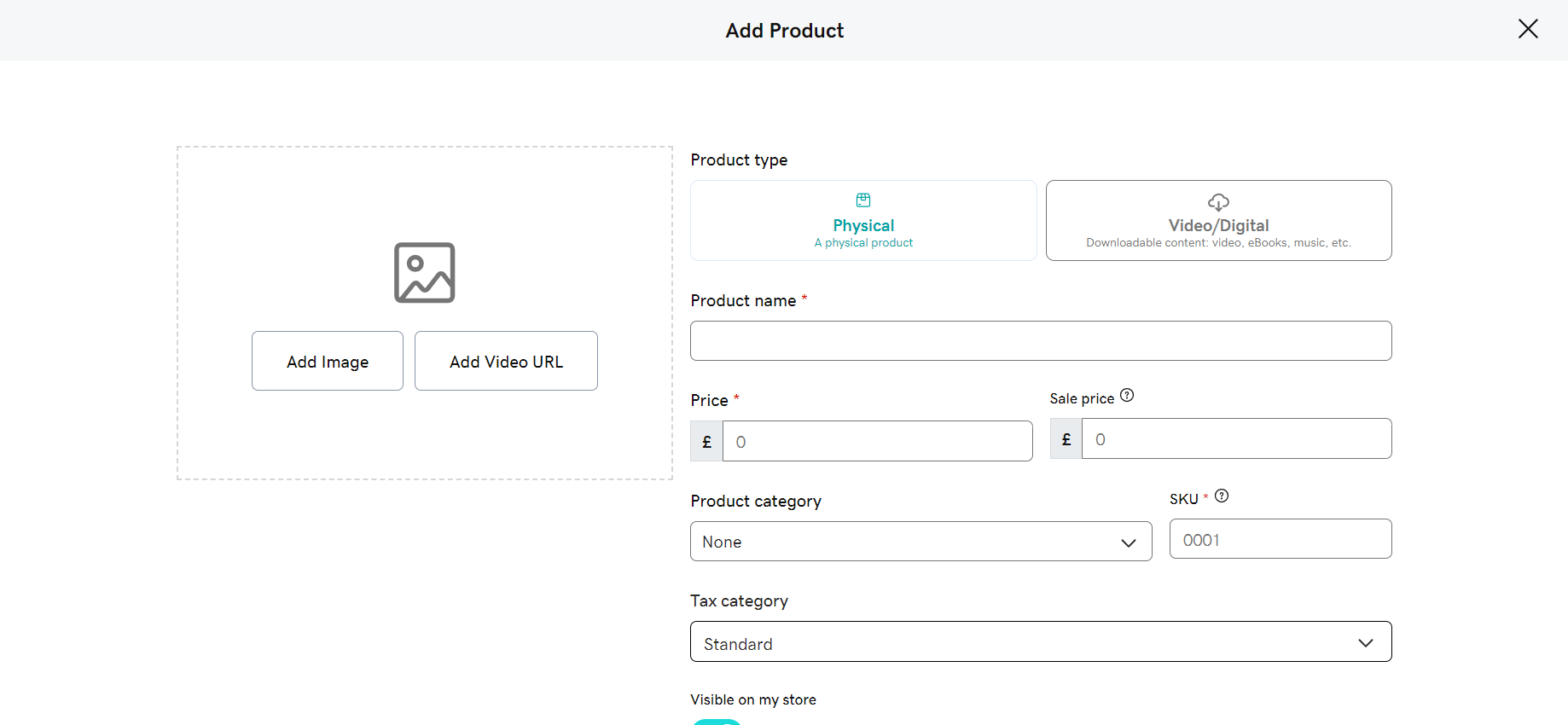
Ecommerce themes & templates
Shopify offers about 150 modern responsive themes for creating a virtual storefront, ensuring a good look on both desktop and mobile devices. While some themes are free, others cost between $170 to $380. On the other hand, GoDaddy provides around 70-80 ecommerce themes that cover diverse industries and styles. These themes are generally mobile-friendly with basic customization options.
Product page customization
Shopify allows three options per product, totaling 100 unique variations. For products with numerous options, creating separate listings on Shopify can be a more manageable approach. While Shopify offers titles, descriptions, and image galleries with zoom effects, customization options like adding ribbons, size charts, and wishlists are not as straightforward. However, Shopify distinguishes itself with additional features through its extensive library of extra apps.
GoDaddy’s ecommerce platform offers users basic customization options like editing content, adding images, and adjusting layouts. For advanced customization, coding knowledge is required. Additional features include managing product variations, organizing information with tabs, and implementing discount codes and promotions directly on the page.
Payment processing
Shopify offers payments with typical charges of 2.9% + 30¢ per online transaction on basic plans, and lower fees for higher-tier plans. However, it adds extra fees for using other payment gateways. Shopify Payments is Shopify’s own payment processing gateway, simplifying the payment process, reducing transaction fees, and streamlining the handling of finances.
GoDaddy Payments provides a versatile solution for online, in-person, and phone payments with a tiered pricing structure. Online transactions have the lowest fees (2.3% + 30¢), while in-person and manually entered transactions have slightly higher rates. GoDaddy Payments offers simplicity, but users requiring specific integrations with shopping carts or CRM systems may find limited support.
Website Editors
Website EditorsEvaluates the platforms’ website building and editing capabilities.Score Components:
- Customization tools (40%): Range and power of editing features.
- Editor usability (30%): User experience within the editor.
- Design flexibility (20%): Freedom in layout and design changes.
- Update and maintenance ease (10%): Simplicity of updating and maintaining the site.
 7.9
7.9
 6.7
6.7
🏆
Winner: Shopify
. Shopify’s editor, with a score of 7.9, excels in providing a streamlined, ecommerce-focused editing experience. It’s particularly beneficial for users who prioritize efficient management of online stores. The editor is straightforward, making it easy to add products, manage inventory, and set up payment methods. Shopify’s editor is optimized for sales and business growth, with built-in tools specifically designed for ecommerce businesses.
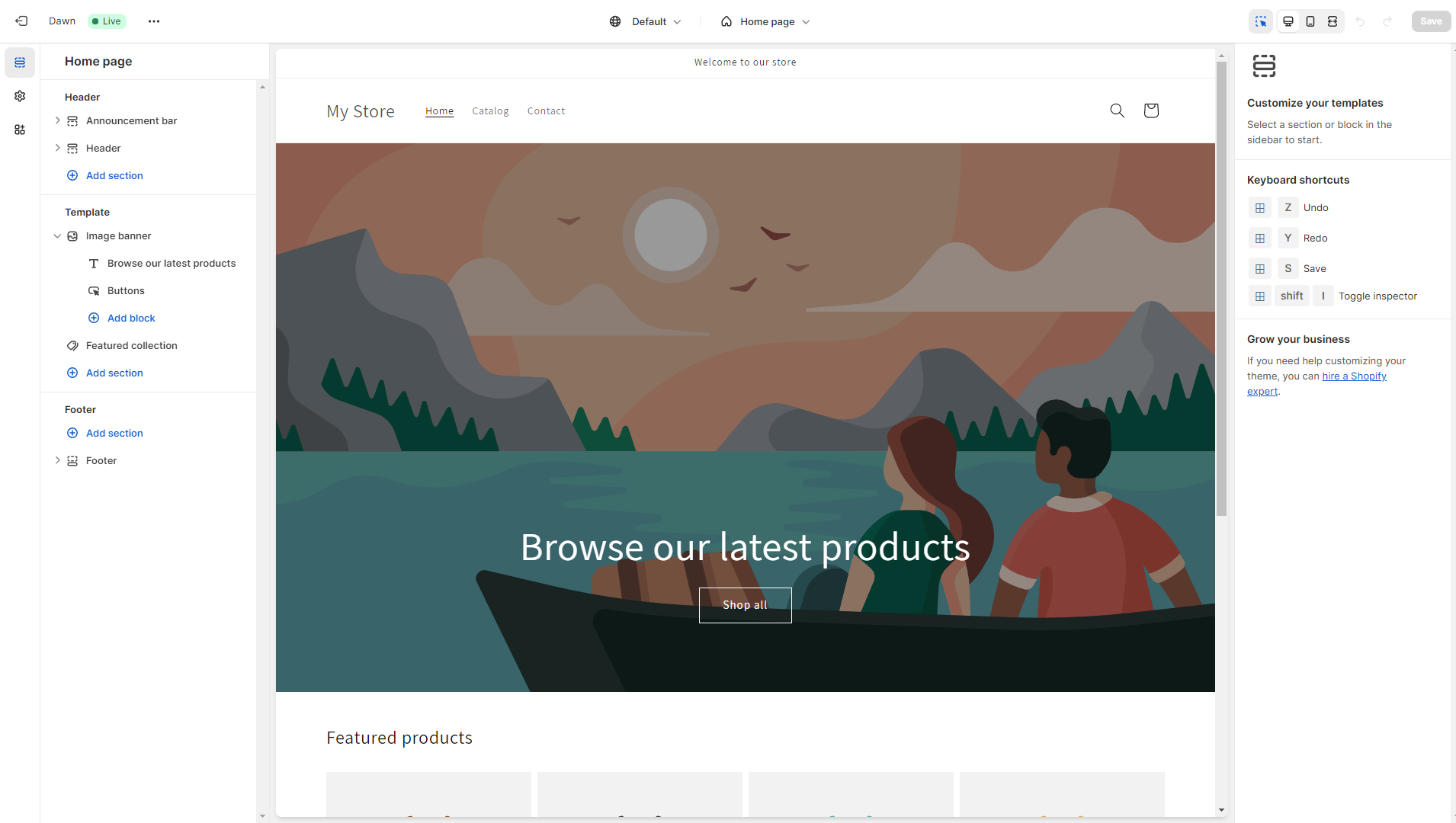
GoDaddy’s editor, scoring 6.7, is a user-friendly drag-and-drop tool enabling website creation without coding. It offers pre-designed templates, a mobile-friendly interface, basic SEO tools, and ecommerce integration, making it accessible for beginners, with affordable pricing plans and an all-in-one solution. However, it has some design limitations, basic features compared to dedicated platforms, a learning curve for extensive use, and potentially limited third-party app integrations.
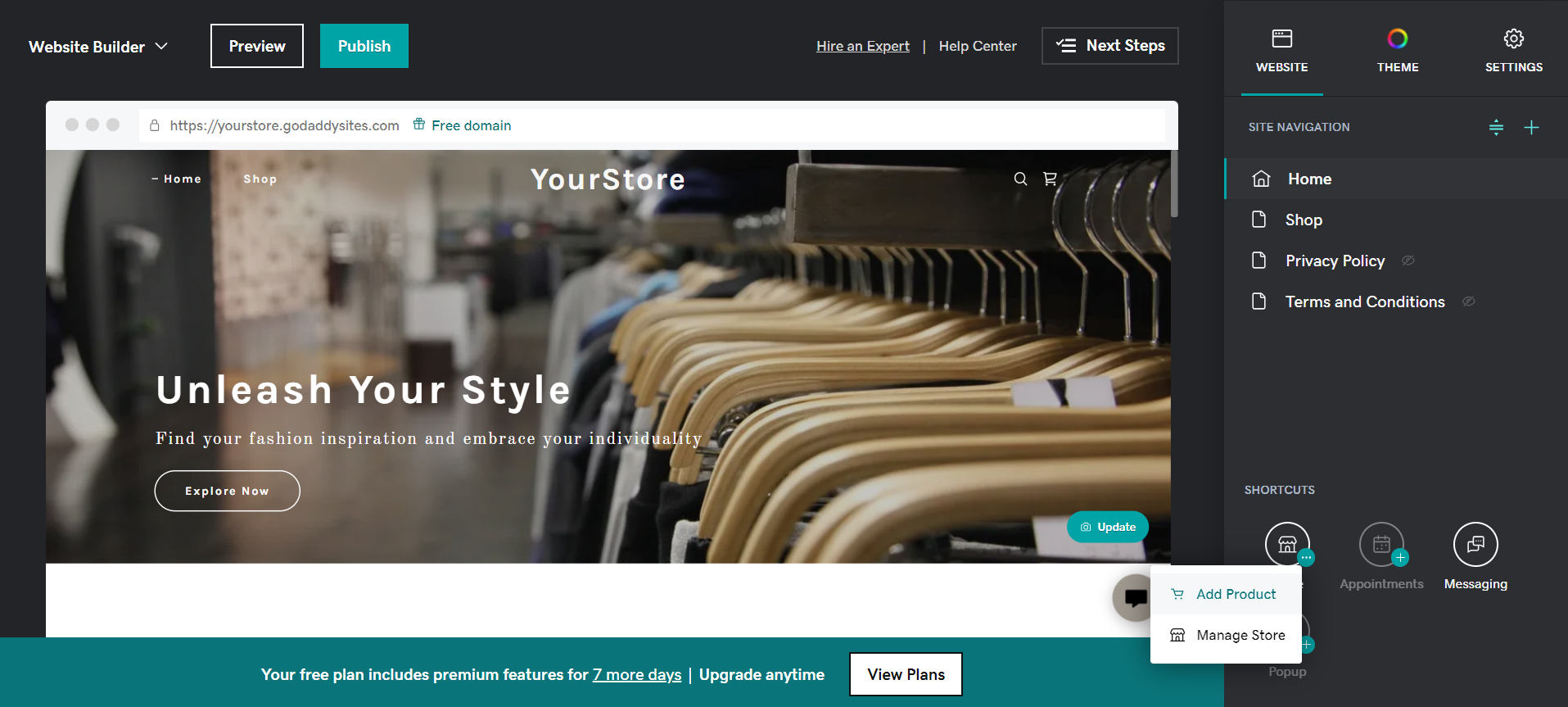
Mobile editor/app
 8.0
8.0
 5.5
5.5
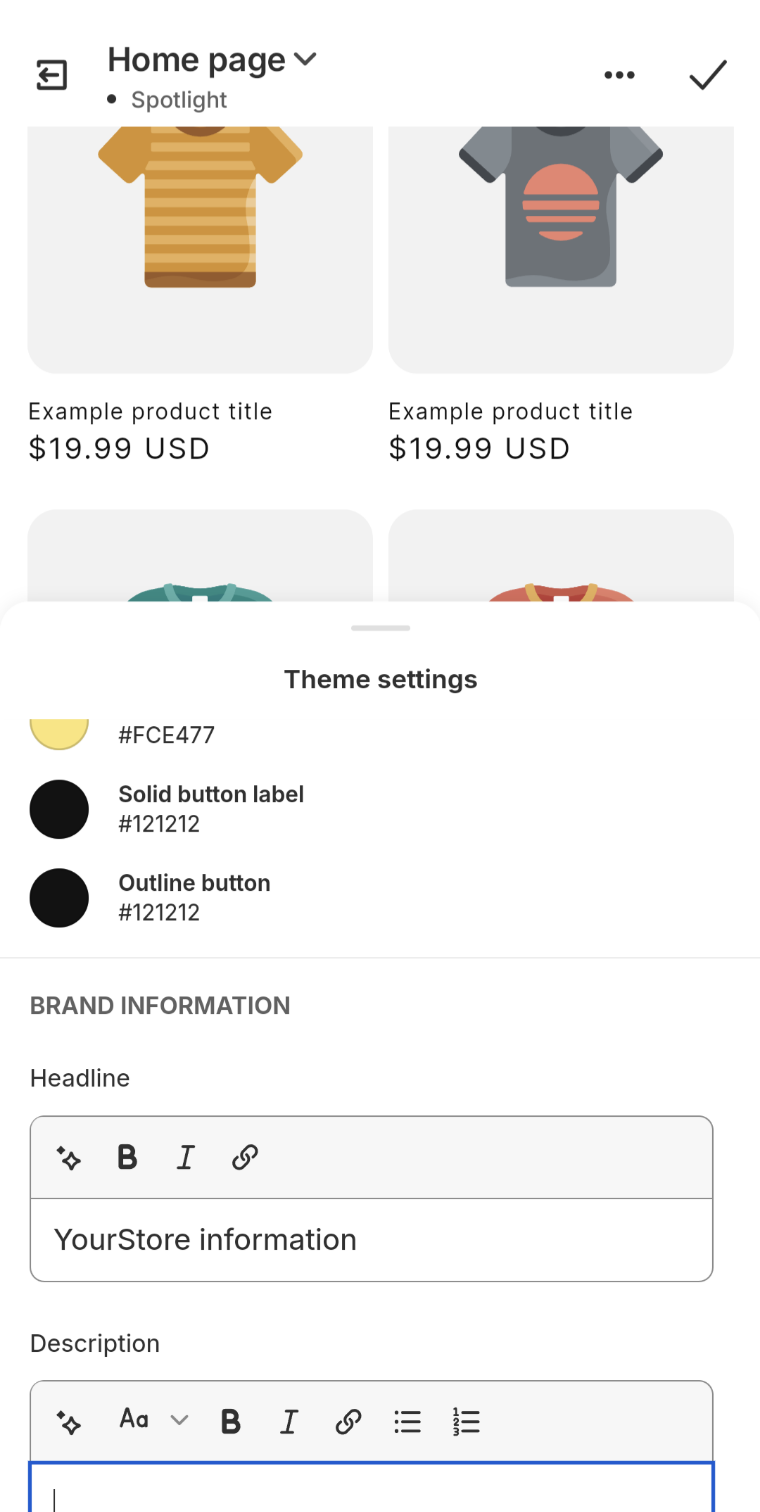
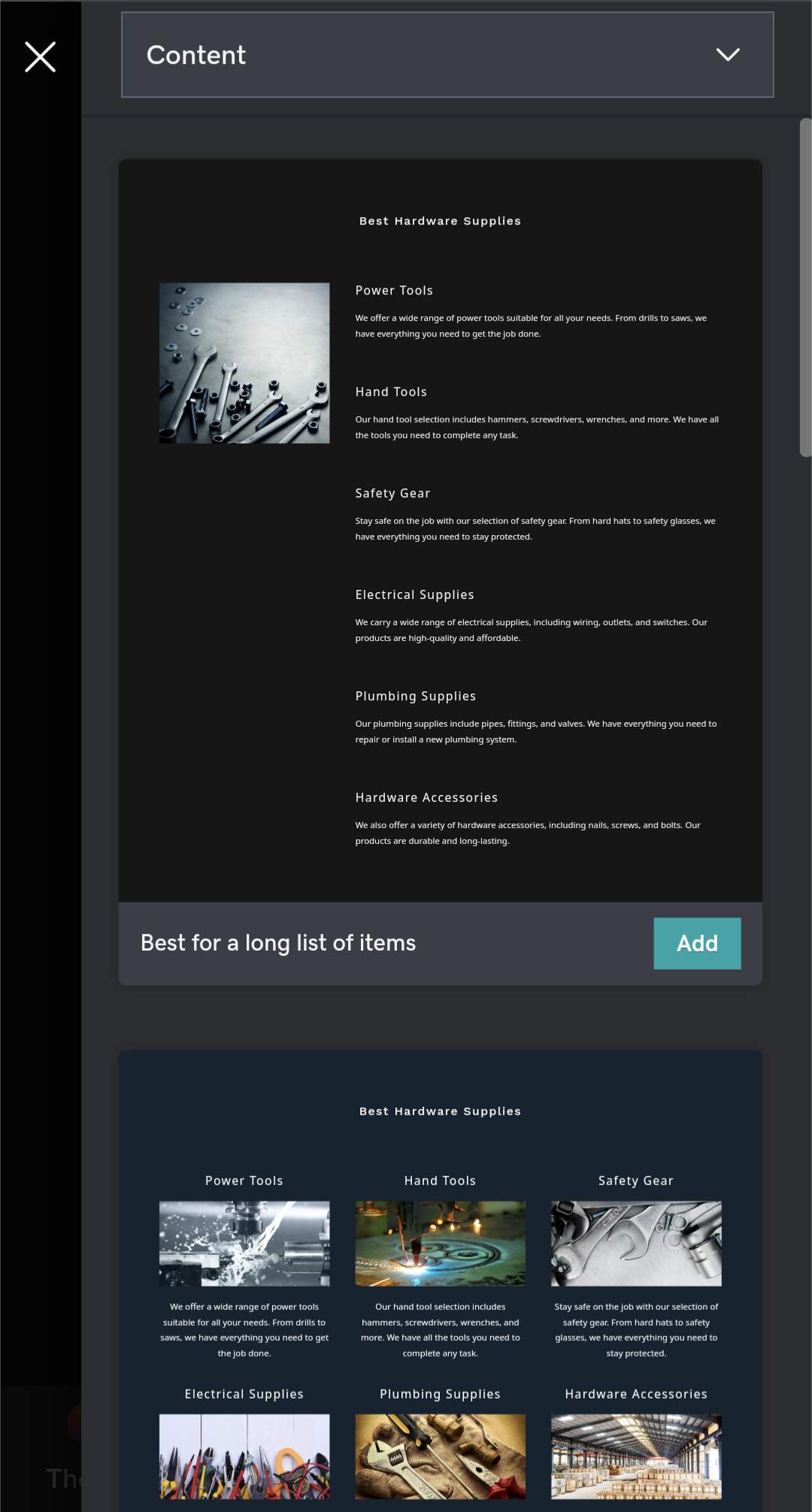
🏆
Winner: Shopify
. Both Shopify and GoDaddy offer mobile editing capabilities, but they differ significantly in their approach. Shopify has a dedicated mobile app that allows users to customize their online store directly from their mobile device. This feature enables the addition, removal, editing, and rearrangement of content on the store’s website, offering convenient on-the-go adjustments to the store’s appearance and layout.
On the other hand, GoDaddy does not have a dedicated mobile app for editing websites. Instead, users can log into their GoDaddy account and access the website builder through a mobile web browser. While this approach provides some level of mobile editing capability, the experience might be slightly more constrained on a smaller screen.
In summary, Shopify’s dedicated mobile app provides a more robust and user-friendly mobile editing experience, earning it a higher score in this category.
Product testing options
Product Testing OptionsAssesses the options for trying out platform features before commitment.Score Components:
- Trial quality (40%): Extent and usefulness of the trial or free version.
- Feature accessibility (30%): How many features are available to test.
- Trial duration (20%): Length of the trial period.
- Ease of transition (10%): Smoothness of moving from trial to paid plans.
 8.1
8.1
 8.1
8.1
Overall Result
:
Tie
. Both Shopify and GoDaddy score 8.1, each with their unique advantages in product testing. Shopify offers the benefit of testing all features, including premium ones, during its 14-day free trial, allowing for a complete, albeit brief, evaluation. GoDaddy, on the other hand, doesn’t offer a free trial but provides a 30-day money-back guarantee. This allows users to sign up for any paid plan, explore all the features, and get a full refund within 30 days if they are not satisfied.

|

|
|
|---|---|---|
|
Free Plan |
No (14-day free trial) |
Yes |
|
Trial Duration |
14 days |
No, however they have 30 days money back guarantee |
|
Testing Premium Features |
All features during free trial |
Full refund within 30 days if not satisfied |
Price
PriceLooks at the cost-effectiveness and value for money of each platform.Score Components:
- Plan value (40%): What each pricing tier offers.
- Transparency and clarity (30%): Clearness of pricing structures.
- Flexibility of plans (20%): Range of options to suit different budgets.
- Hidden costs (10%): Additional expenses not included in the plan.
 8.2
8.2
 7.9
7.9
Shopify and GoDaddy offer a range of pricing plans to cater to different needs, with Shopify focusing more on ecommerce and GoDaddy offering a broader range of services.

|

|
|
|---|---|---|
|
Free |
No offering at this amount. |
Free ($0/month): Build a basic website with limited templates, storage, and features. Ideal for testing the platform. |
|
$0-$8 |
No offering at this amount. |
Basic ($5.99/month): More templates, custom domain support, email marketing, SEO tools, social media integrations, analytics. Ideal for personal websites and small businesses. Value for price: 6.5 |
|
$8-$10 |
No offering at this amount. |
Premium ($9.99/month): All Basic features + blog, ecommerce with product listings and payments, advanced marketing tools, and analytics. Ideal for businesses with online sales or growing web presence. Value for price: 8.0 |
|
$10-$18 |
No offering at this amount. |
Commerce ($15.99/month): All Premium features + advanced ecommerce tools like cart recovery, discounts, reviews, memberships, and unlimited products. Ideal for businesses with significant online sales and complex product offerings. Value for price: 9.0 |
|
$18-$30 |
Shopify Basic ($29/month): Unlimited products, 2.9% + 30¢ card fee with Shopify payments, Extra 2% gateway fee without Shopify Payments, Abandoned cart recovery, Automated sales tax, Digital products, POS Integration, 2 staff accounts. Value for price: 8.0 |
Pro ($19.99/month): All Commerce features + priority support, higher bandwidth, website security, and CDN. Ideal for businesses with high traffic and critical online presence. Value for price: 9.5 |
|
$70-$80 |
Shopify Standard ($79/month): Lower card fees (2.6% + 30¢), Gift cards, Professional reports, 5 staff accounts. Value for price: 8.5 |
No offering at this amount. |
|
$200+ |
Advanced Shopify ($299/month): Lowest card fees (2.49% + 30¢), Advanced report builder, Real-time carrier shipping, Up to 15 staff accounts. Value for price: 8.8 |
No offering at this amount. |
location. As a result in rare cases the prices displayed here can differ from the ones you see on their
websites.
Hosting quality
Hosting
qualityExamines the reliability and performance of the hosting solutions.Score Components:
- Uptime (40%): Consistency and reliability of website availability.
- Speed (30%): Loading times and performance.
- Bandwidth and storage (20%): Sufficiency of resources provided.
- Data centers (10%): Quality and distribution of hosting infrastructure.
 9.0
9.0
 7.8
7.8
🏆
Winner: Shopify
Shopify’s proprietary cloud-based hosting, with a 99.99% uptime guarantee and 5 global data centers, is designed for high-traffic online stores. GoDaddy, on the other hand, offers a variety of hosting types, including shared, VPS, and dedicated hosting, with a 99.9% uptime guarantee. While GoDaddy’s hosting is more versatile, Shopify’s specialized e-commerce hosting earns it a higher rating.

|

|
|
|---|---|---|
|
Do they offer hosting? |
Yes, included in all paid plans |
Yes, included in all paid plans |
|
Data Centers: |
5 globally: USA (Ashburn, Virginia; Santa Clara, California), Canada (Toronto, Ontario), Ireland (Dublin), and Singapore |
Data Centers in USA, France, Germany and UK Cloud Services Through AWS |
|
Type of hosting: |
Proprietary cloud-based hosting |
Shared Hosting, VPS Hosting, Dedicated, WordPress Hosting |
|
Uptime: |
99.99% |
99.9% |
|
Uptime Guarantee: |
Yes, 99.99% |
Yes, 99.9% |
Website Speed Optimization
Website Speed OptimizationEvaluates optimization of website loading timesScore Components:
- PageSpeed Score (30%): Google’s score indicating performance optimization.
- Loading Time (30%): The average time until a website is fully interactive.
- Mobile Optimization (15%): Optimization effectiveness for mobile devices.
- Resource Optimization (15%): Optimizing images, scripts, and other heavy resources.
- CDN Usage (10%): Use of CDN to enhance speed across geolocations.
 7.8
7.8
 7.6
7.6
🏆 Winner: Shopify
Both Shopify and GoDaddy place a high priority on website performance and page speed, with Shopify focusing on app efficiency and theme optimization, and GoDaddy emphasizing CDN, automatic maintenance, and resource optimization. However, Shopify gets a slight edge when it comes to website speed optimization.

|

|
|
|---|---|---|
|
Focus |
App efficiency, Theme optimization |
CDN, Automatic Maintenance, Resource Optimization |
|
Performance Tools |
Google Lighthouse, PageSpeed Insights |
Google PageSpeed Insights Integration |
|
Key Strategies |
App efficiency, Theme optimization |
CDN, Automatic Maintenance, Resource Optimization |
|
Load Times |
Varies widely, dependent on optimization |
Shared Hosting: 2-4 seconds, VPS Hosting: 1-2 seconds, Dedicated Server: 0.5-1.5 seconds |
|
Page Speed Scores Range |
Scores vary; influenced by apps, images |
Shared Hosting: 50-70/100, VPS Hosting: 70-85/100, Dedicated Server: 80-95/100 |
|
Core Web Vitals Improvement |
Emphasis on LCP, FID, CLS improvements |
Infrastructure upgrades, effective caching mechanisms, image optimization tools, automatic minification of code files, optimized templates and code structures for efficient rendering |
Shopify places a strong emphasis on website performance and page speed. Shopify’s approach to enhancing site speed includes app optimization by removing unneeded app code, conditionally loading apps, avoiding immediate pop-up displays, and incorporating app functionality directly into themes. This approach leverages Shopify’s fast servers and CDN network to boost load speed. Shopify also suggests utilizing Google AMP for faster mobile page loads, although with some design compromises. Analysis of three Shopify sites showed a range of Shopify speed scores from 14 to 75, Google PSI scores from 8 to 80, and load times varying from 10.6 seconds to 2.3 seconds. Continuous maintenance and optimization are essential for keeping Shopify stores fast.
GoDaddy, like Shopify, places a strong emphasis on website performance and page speed. GoDaddy’s approach to enhancing site speed includes CDN, automatic maintenance, and resource optimization. GoDaddy has enhanced its platform through infrastructure upgrades, including improved server infrastructure and data centers, resulting in faster loading times. Additionally, the implementation of effective caching mechanisms, image optimization tools, and automatic minification of code files contribute to a smoother user experience and improved Core Web Vital metrics. The website builder features optimized templates and code structures for efficient rendering, further enhancing overall performance.
Get a head start on website creation with AI
Create a custom website tailored to your business needs 10X faster with 10Web AI Website Builder!
Plugins and integrations
Plugins and integrationsMeasures the range and effectiveness of additional plugins and integrations.Score Components:
- Variety of options (40%): Range of available add-ons.
- Integration smoothness (30%): Ease of integrating plugins into the site.
- Quality of plugins (20%): Functionality and reliability of the options.
- Custom integration capabilities (10%): Support for custom or third-party integrations.
 8.7
8.7
 7.3
7.3
🏆 Winner: Shopify.
Shopify scores 8.7, leading the way with its extensive range of ecommerce-focused plugins and seamless integrations. It’s a powerhouse for adding functionalities that scale with your business. GoDaddy, with a score of 7.3, offers a more limited set of built-in features and lacks a traditional plugin marketplace. However, it does provide access to the extensive WordPress plugin repository on its Managed and Unmanaged WordPress Hosting platforms.
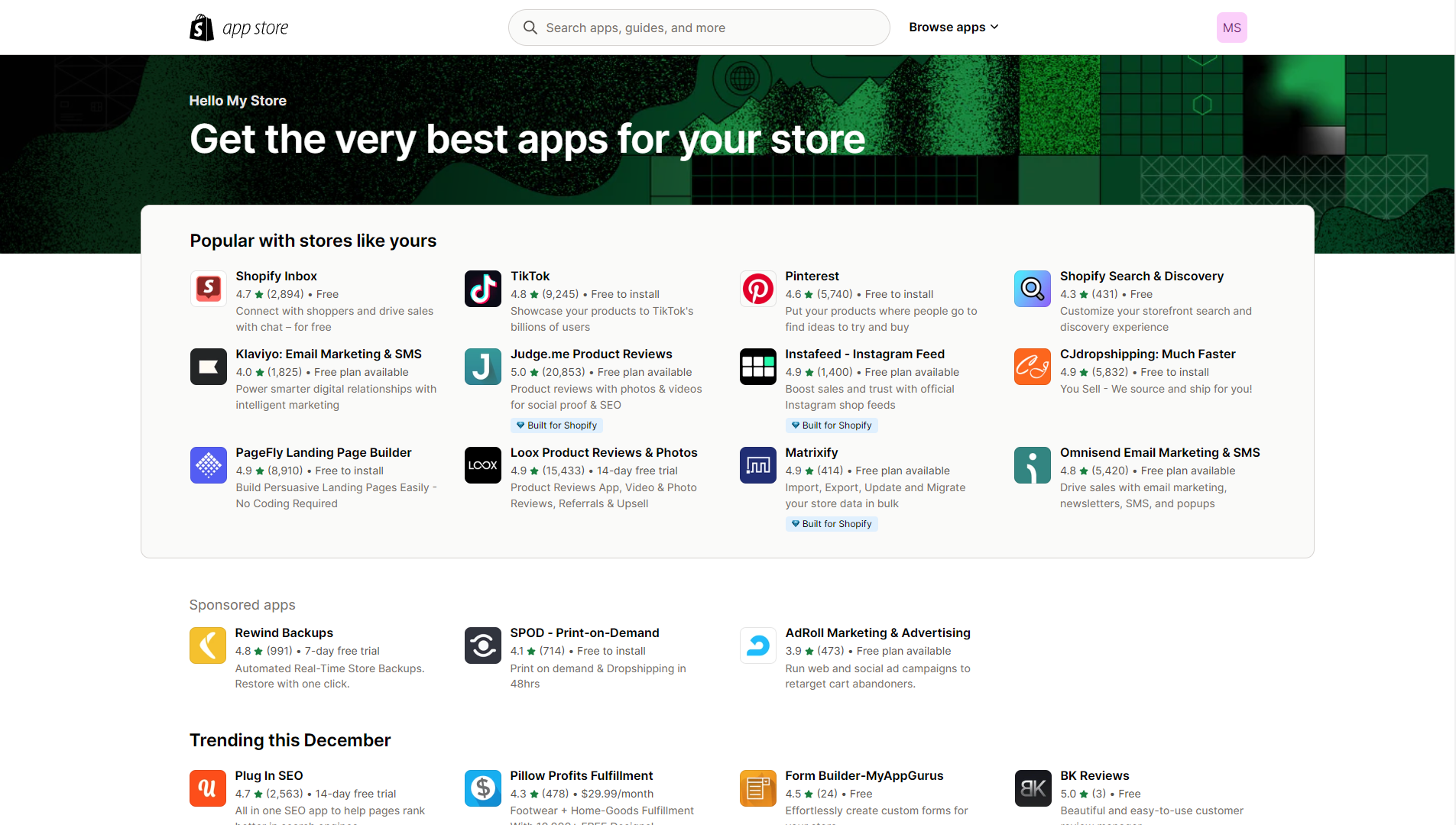
Marketing Features
Design FunctionalitiesRepresents how well each platform allows for creative design and customization of websites.Score Components:
- Template Variety (30%): Range and quality of design templates.
- Customization (30%): Flexibility and options for design alterations.
- User Interface (20%): Ease and intuitiveness of the design process.
- Responsiveness (10%): Adaptability to different devices and screen sizes.
- Innovation (10%): Unique design features and tools.
 8.8
8.8
 7.3
7.3
🏆
Overall Winner: Shopify
. Shopify stands out for its more advanced ecommerce-focused marketing tools, especially in analytics and ad campaign management. GoDaddy offers a comprehensive suite of marketing tools, but they are not as advanced as Shopify’s.

|

|
|
|---|---|---|
|
SEO Tools |
|
|
|
Email Marketing |
|
|
|
Blogging |
|
|
|
Social Media Integration |
Advanced integration for selling directly on social platforms |
Tools for social media linking and content sharing |
|
Analytics and Reporting |
Detailed analytics for in-depth insights |
Basic analytics with more detailed insights on higher plans |
|
Ads and Promotions |
Google Ads integration; sophisticated ad campaign management |
Features to create and track online ads, including Google Ads |
Customer Support
Customer supportEvaluates the quality and availability of support options.Score Components:
- Response time (40%): Speed of support responses.
- Support quality (30%): Effectiveness and helpfulness of the support.
- Availability (20%): Range of support channels (phone, chat, email).
- Resource richness (10%): Quality of self-help and educational materials.
 8.6
8.6
 8.5
8.5
🏆 Winner: Shopify
. In the Shopify vs GoDaddy comparison, Shopify edges out slightly with a customer support score of 8.6 compared to GoDaddy’s 8.5. Shopify offers 24/7 support through chat, email, and phone, along with clear tutorials and a robust community forum. Their marketing blog is also a valuable resource for business growth strategies.
GoDaddy provides versatile customer support options, including 24/7 phone support in multiple languages, live chat, and email assistance with responses within 24 hours. They also offer a 24/7 Community Forum and support through social media channels. While GoDaddy’s support hours vary by region, their comprehensive language support ensures accessibility for a global user base.
Security
SecurityLooks at the platforms’ security measures and data protection.Score Components:
- Data protection (40%): Safeguards for user and customer data.
- SSL and encryption (30%): Implementation of secure connections.
- Compliance (20%): Adherence to industry security standards.
- Regular updates (10%): Frequency of security updates and patches.
 9.0
9.0
 6.8
6.8
🏆
Winner: Shopify
. Shopify scores higher in security, with a score of 9.0 compared to GoDaddy’s 6.8. Shopify’s security measures are comprehensive, including secure infrastructure, encryption, limited access, data minimization, user control and transparency, two-factor authentication, regular audits, and a dedicated incident response team. Shopify also provides SSL certificates for data encryption and website identity verification, and a built-in Web Application Firewall for threat filtering and blocking.
GoDaddy, while offering robust website security features such as SSL certificates, malware scanning, and web application firewalls, falls short in private data storage protection. It provides limited options and may not fully comply with regulations like HIPAA or GDPR. Users seeking comprehensive data security may need to consider alternative solutions.
AI Capabilities
AI capabilitiesMeasures the effectiveness of AI-driven features and tools.Score Components:
- Automation efficiency (40%): Impact of AI on streamlining processes.
- Personalization (30%): AI-driven customization for users or customers.
- AI-Assisted design (20%): Role of AI in website design and functionality.
- Data analysis (10%): Use of AI in interpreting user data and analytics.
 7.9
7.9
 7.5
7.5

|

|
|
|---|---|---|
|
AI Builder |
Shopify AI Builder with various functionalities |
|
|
AI Ecommerce features |
Personalized recommendations, dynamic search, automated marketing, data analysis tools for sales forecasting, customer segmentation, and dynamic price optimization |
AI-generated product descriptions, customer service tools, and digital ad creation |
|
AI Content Generation |
Content Assistant for brainstorming ideas and generating content |
AI-generated product descriptions, customer service messages, and social media ads |
|
Additional AI features |
Demand Forecasting, Automated Replenishment, Smart Fraud Detection, Chargeback Management, AI-powered Chatbots, Sentiment Analysis, Route Optimization, Warehousing Optimization |
|
🏆 Winner: Shopify
. Shopify, with a score of 7.9, has a more comprehensive set of AI capabilities, including a dedicated AI builder and a wide range of AI-driven eCommerce features. While GoDaddy, with a score of 7.5, offers some AI-powered eCommerce features, it lacks a dedicated AI builder and additional AI features.
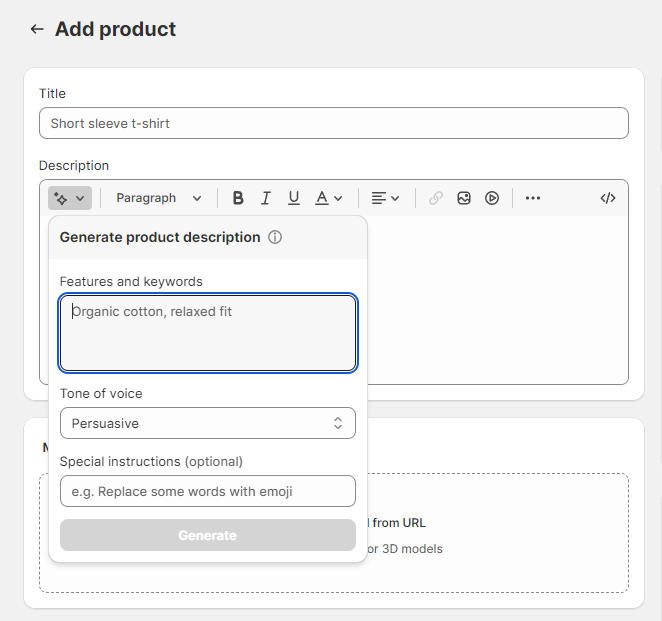
User Management
User ManagementAssesses the platforms’ capabilities in managing user roles, permissions, and accessibility.Score Components:
- Role Customization (40%): Flexibility in creating and defining user roles and
permissions. - Ease of Management (30%): User interface and tools for managing users.
- Access Control (20%): Effectiveness of access control measures for different user
levels. - Scalability (10%): Ability to manage a growing number of users efficiently.
 6.5
6.5
 7.3
7.3
🏆 Winner: GoDaddy
. Managing your online team with Shopify and GoDaddy involves different approaches to website editing access.
-
Shopify enforces staff account limits based on plans, ranging from 2 to 15, with Shopify Plus offering unlimited
accounts. Collaborators with limited access are also an option. - The number of users who can edit a GoDaddy website varies based on the hosting plan and website building tool. For Website Builder (GoCentral and Websites + Marketing), the free plan permits one user, while Deluxe and Ultimate plans allow up to five users with full editing permissions. In WordPress Hosting, there’s default support for unlimited users, each with customizable permission levels controlled through the WordPress dashboard.
Shopify User Roles and Access Levels:
| Role | Description | Access Highlights |
|---|---|---|
| Store Owner | Full control over store | Manage products, orders, discounts, payments, apps, settings. Create and manage staff accounts. |
| Staff | Configurable access by owner |
Add/edit products, manage orders, fulfill orders, manage customers, update content. Access level can be customized by the owner. |
| Collaborator | Limited access for external partners | View and manage specific sections like blog or product categories. Cannot access full store settings. |
GoDaddy User Roles and Access Levels:
| Role | Description | Access Highlights |
|---|---|---|
| Account Holder | The primary owner of the GoDaddy Website Builder account. | Full access to all website builder features, domain management, hosting settings, and account settings. |
| Delegate Access | Users granted permission by the account holder to access specific parts of the GoDaddy account. | Can be given varying levels of access, from managing domains and products to making purchases on behalf of the account holder. |
| Website Editor | Users with permissions to edit and update the website through the Website Builder interface. | Can customize the website, add or edit sections (e.g., image galleries, menus), and update content. |
| Online Store Manager | Specifically for websites with e-commerce capabilities, managing product listings, orders, and payments. | Access to manage the online store, including product listings, coupons, shopping cart, shipping, and payments. |
Additional Features

|

|
|
|---|---|---|
|
SSL Certificate |
|
|
|
Custom Domain |
|
|
|
Free Custom Domain Included |
|
|
|
International Domains |
|
|
|
Mobile Responsive |
|
|
|
Page Speed |
|
|
|
Website Builder Mobile App |
|
|
|
Convert a Website To An App |
|
|
|
Website Analytics |
|
|
|
Multilingual Sites |
|
|
|
Multiple Users |
|
|
User Feedback
Shopify’s slightly higher rating on G2 Crowd can be largely attributed to its specialization in ecommerce. Its comprehensive features, ease of use, and robust customer support cater specifically to online businesses, leading to high user satisfaction among those seeking a dedicated ecommerce solution.
GoDaddy, on the other hand, is praised for its affordability, reliability, and user-friendly interface, especially in domain registration and hosting services. However, users have expressed concerns about occasional interface changes, perceived slowness in website hosting, and dissatisfaction with pricing increases, which might explain its lower rating when comparing Shopify vs GoDaddy.
The making of this blog
We followed a clear, step-by-step process to write and research this article.
FAQ
Which platform is better for beginners, Shopify or GoDaddy?
Can I use both Shopify and GoDaddy for selling products online?
How do Shopify and GoDaddy differ in terms of customization and design flexibility?
What are the major differences in pricing and value between Shopify and GoDaddy?











